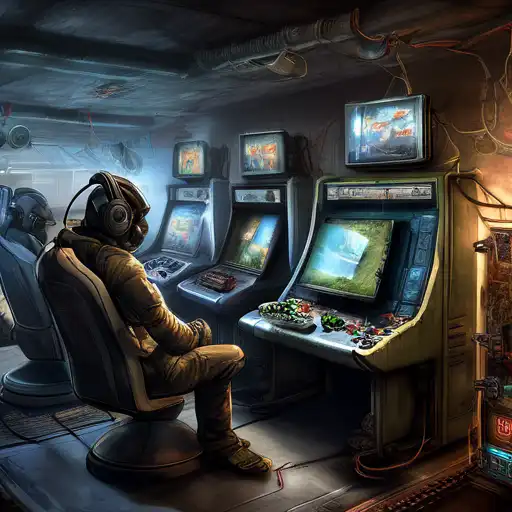The Revolutionary Journey of Gaming Technology Through the Ages
The evolution of gaming technology is a fascinating tale of innovation, creativity, and technological advancement. From the simple pixelated games of the 1970s to the immersive virtual reality experiences of today, gaming technology has undergone a remarkable transformation. This article explores the key milestones in the evolution of gaming technology and how it has shaped the way we play and interact with digital worlds.
The Dawn of Gaming: Arcade and Console Beginnings
The journey of gaming technology began in the early 1970s with the introduction of arcade games like Pong and home consoles such as the Magnavox Odyssey. These primitive games laid the foundation for the gaming industry, offering simple, yet addictive gameplay that captivated audiences worldwide.
The Rise of Personal Computers and Home Gaming
By the 1980s and 1990s, personal computers and more advanced consoles like the Nintendo Entertainment System (NES) and Sega Genesis brought gaming into the living room. This era saw the introduction of iconic franchises such as Super Mario Bros. and Sonic the Hedgehog, which remain popular to this day.
The 3D Revolution and Online Gaming
The mid-1990s to early 2000s marked a significant leap in gaming technology with the advent of 3D graphics and online gaming. Consoles like the PlayStation and Xbox introduced gamers to immersive 3D worlds, while the internet opened up new possibilities for multiplayer gaming and online communities.
The Modern Era: Virtual Reality and Beyond
Today, gaming technology continues to push boundaries with virtual reality (VR), augmented reality (AR), and cloud gaming. Devices like the Oculus Rift and platforms such as Google Stadia are redefining what it means to play games, offering unprecedented levels of immersion and accessibility.
Looking Ahead: The Future of Gaming Technology
As we look to the future, emerging technologies like artificial intelligence (AI) and blockchain are set to further revolutionize the gaming industry. From more realistic and responsive game worlds to new forms of ownership and monetization, the possibilities are endless.
The evolution of gaming technology is a testament to human ingenuity and the endless pursuit of better, more engaging ways to play. As technology continues to advance, so too will the ways in which we experience games, promising an exciting future for gamers around the world.
